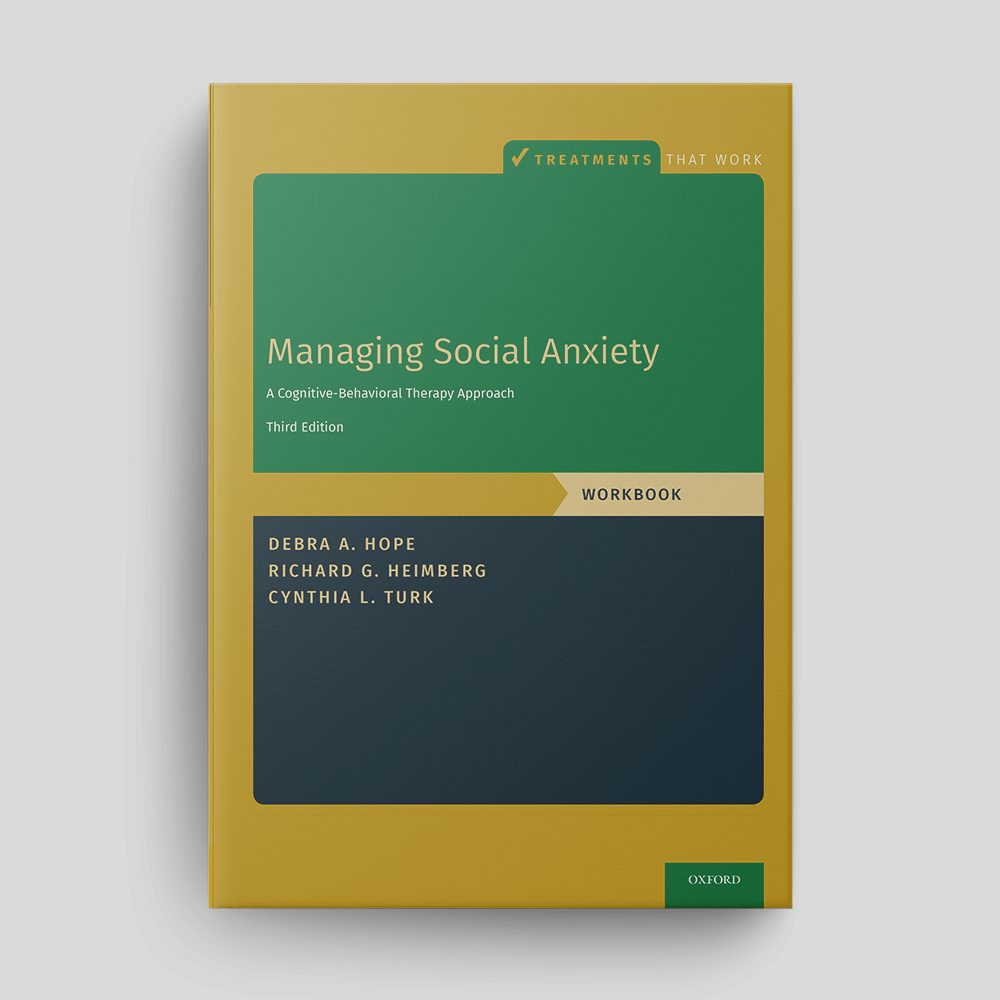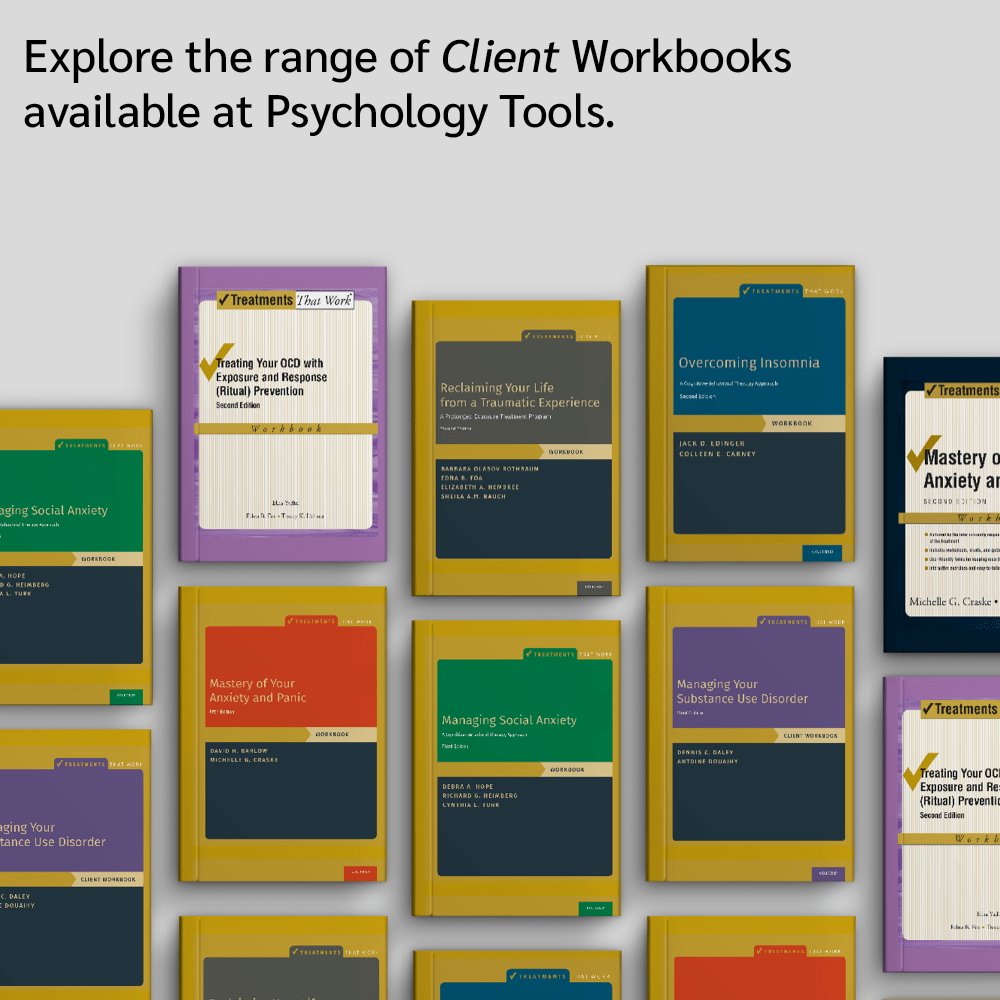Introduction & Theoretical Background
Social anxiety is one of the most common anxiety disorders (Kessler et al., 2005), affecting approximately 7.5% of individuals (Fehm et al., 2008). Left untreated, social anxiety can be a chronic and debilitating condition that significantly impacts peoples’ lives (Morrison & Heimberg, 2013). Symptoms of social anxiety include feeling anxious or fearful in social situations such as interactions with people, performing in front of others, or being observed. In addition, people with social anxiety are often concerned about being negatively evaluated which leads them to avoid social situations or endure them with intense anxiety. Managing Social Anxiety is a comprehensive program to assist clinicians in delivering effective CBT for social anxiety. The program includes two books:
- Managing Social Anxiety: Therapist Guide is the companion to this workbook. It details the step-by-step cognitive-behavioural treatment of social anxiety.
- Managing Social Anxiety: Workbook. It will help your patients to become active participants in their




